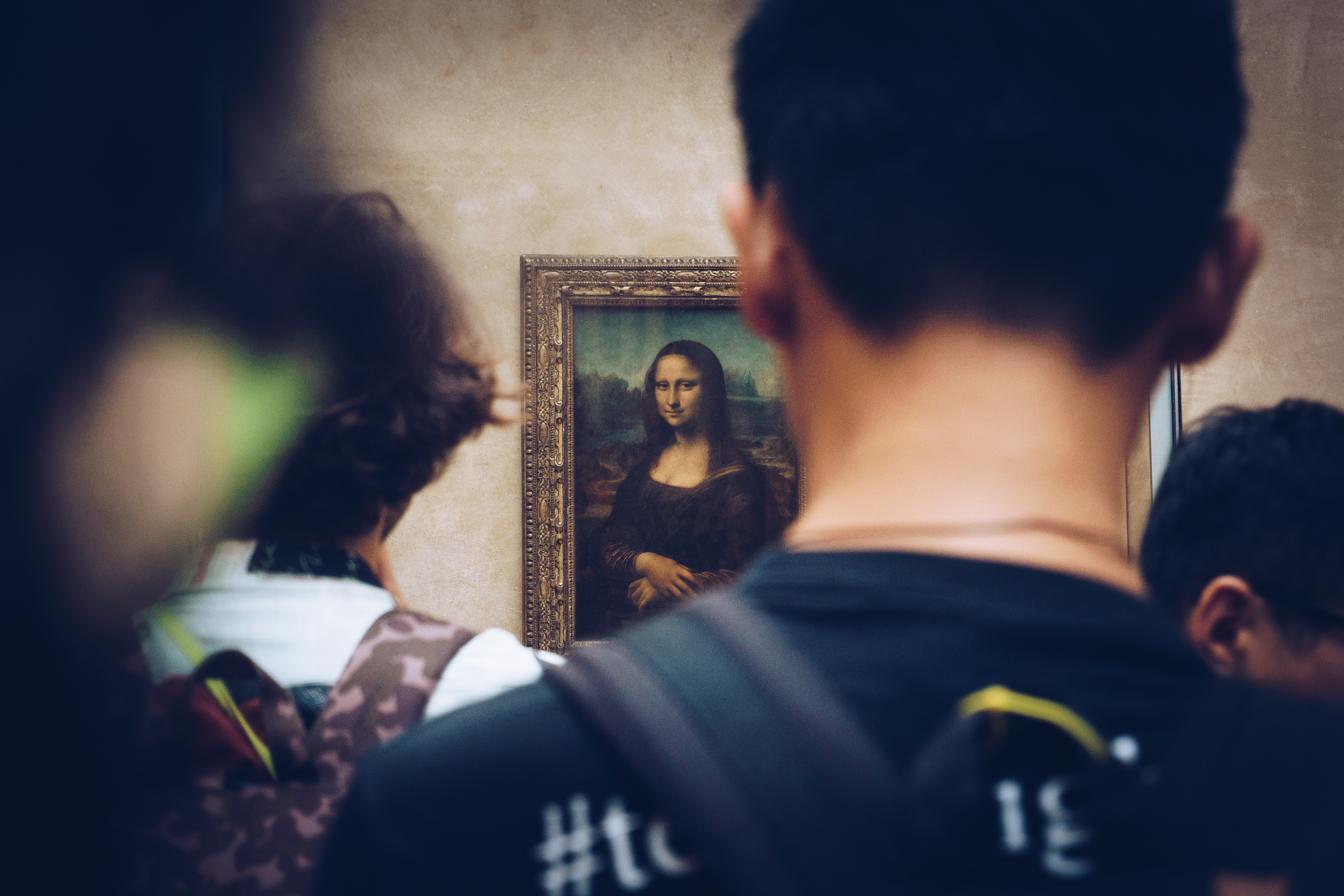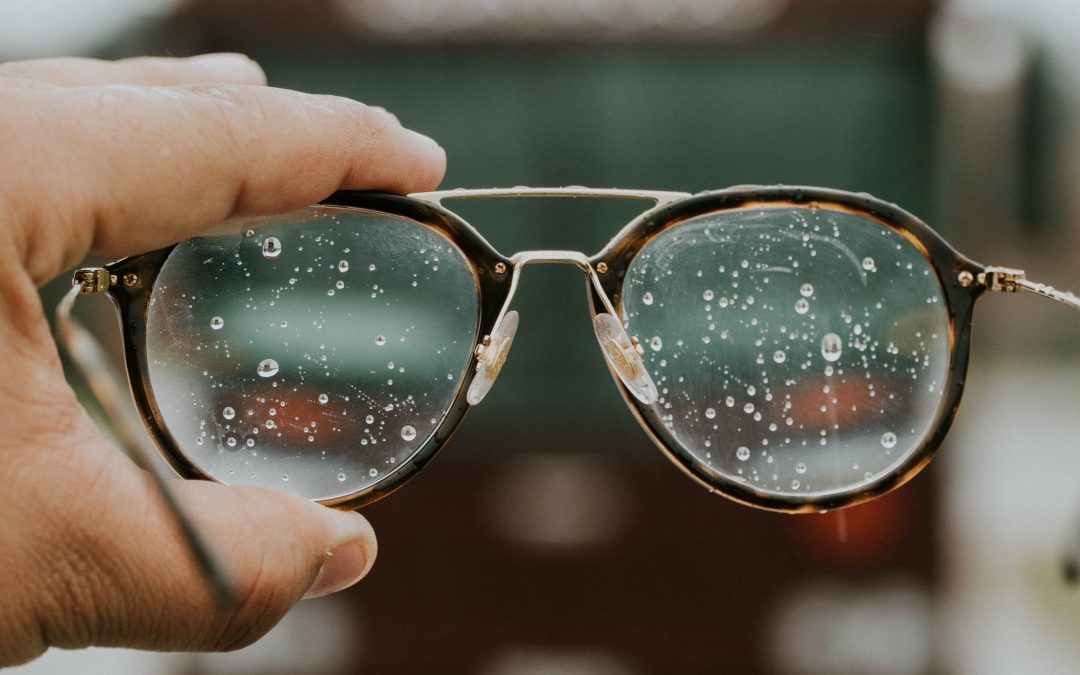Hi readers,
To what degree does our framing of a given situation influence – for better or for worse – our experience of it?
This is a question that was recently asked on the NPR podcast, Invisibilia. In an episode entitled “Frame of Reference”, the hosts of this podcast explored how the invisible frames of reference that filter our experiences can have the power to shape the way we perceive the world around us.
Sociologist Samuel Stouffer came up with the Theory of Relative Deprivation: the idea that it is not your objective situation that determines your happiness, but rather the invisible frame of reference that you carry in your head. According to this theory, people feel deprived or entitled to something based on the comparison to someone else.
We can all probably relate to the experience of being a child and having our parents put our problems in perspective. I can certainly pinpoint occasions when I was in tears over something as trivial as having to clean my room or eat broccoli and my parents responded by reminding me how lucky I was compared with kids who were homeless or starving. For certain kids, though, this situation can be much more extreme.

Invisibilia host Alix Spiegel interviewed Hasan Minhaj, a correspondent for “The Daily Show” who is the son of an immigrant. His father grew up in the wake of partition in India; a particularly violent time when more than a million people were killed. As a result, he has little sympathy for the comparably less significant problems of his American-raised son.
Hasan particularly notices the way his father frames the issue of racism much differently than he does. In a particularly horrible incident, a group of guys prank-called Hassan’s family’s home following 9/11 to ask where Osama Bin Laden was and then smashed in the windows of the family car. Hasan recalls being absolutely furious, while his father reacted by calmly walking inside and finding paper to tape up the windows of the car, totally nonplussed by the incident. Hasan claims that his father’s constant message to him growing up was, Hasan, be grateful, your life is so much better than so many other people.
Alix Spiegel relates particularly well to his stories as she was raised by a mother whose family escaped from the Holocaust when she was a child. Alix recalls:
“As her kid, the way this family history with historical trauma affected me was that it didn’t really matter what kind of hardship you put in front of her – Mom, I don’t like practicing violin six hours a day – Mom, I’m sad I don’t get to see children my age – her basic response was essentially, are you a lamp made of skin? During the Holocaust, the Nazis pulled out teeth for gold fillings and were rumoured to have used Jewish skin to make furniture… that was basically where my Mom’s frame of reference came from, so if you were not a lamp made of skin, it was very hard to get her to understand the gravity of your situation.”

The two of them discuss the cognitive dissonance that comes from switching back and forth between their own frames of reference and their parents, and feeling like, although they recognize the relative privilege they experience compared with their parents, life is not without problems. Both have been made to feel that the hardships they have experienced are not worth talking about. Hanna explains,
“Hasan is living with two dramatically different frames of reference, one which says we live in a world where you should pause and confront the racism of the girl who tells you you’re handsome for an Indian, or someone who calls you a camel jockey, because those things cause serious harm and are elements of a larger system of discrimination. And then there’s the other frame, which says given the horror that can and does happen in this world, that in fact happened to your own family, harms like those are not worth your time. The world is not perfect, and it never will be perfect, so don’t expect it to be, just keep going. You’re lucky you’re even alive.”
A recent episode of the New York Times podcast, ‘Dear Sugars’, also spoke to this dilemma. In the episode titled “The Ugly Truth”, letters were read aloud from listeners whose faces do not align with society’s conventional ideas of beauty. In each and every letter, the writer’s pain regarding their perceived ugliness was compounded by a kind of guilt and self-loathing for being consumed by such a seemingly superficial problem. It was as though the knowledge that they were focused on their lack of physical beauty while others in the world were suffering from far more significant problems, far from making them feel better about their fate, added an additional layer of shame to the situation. The writers were not allowing themselves room to fully validate and explore the feelings they had and move to a place of acceptance because they felt the very existence of the emotions was a sign of weakness and vanity. An excerpt from the autobiography of poet Lucy Grealy is quoted which reads:
“I treated despair in terms of hierarchy. If there was a more important pain in the world, it meant my own was negated. I thought I simply had to accept the fact that I was ugly and that to feel despair about it was simply wrong.”

This concept of comparing and ranking our pain is endlessly interesting to me. I find myself constantly assessing both my own experiences and the experience of others according to where they fall on a line of possible hardships, and am always swaying back and forth between wanting to embrace sensitivity and validate even the smallest of emotional pains and bucking up, keeping my head held high, and not even acknowledging whatever challenges stand in my path.
Which approach is better? It’s hard to say – like everything, it’s most likely a balance. There are advantages and disadvantages to both letting your problems bounce off you and feeling the weight of everything that you experience. However, when it comes to mental illnesses, those that suffer from them have a long history of being made to feel like their problems are not legitimate. Feeling shame around a diagnoses is ubiquitous, and hearing others say that you have no reason to be depressed when life is going so well only makes the problem worse. People feel what they feel for a reason, and no matter how small the reason is, acknowledging that can go a long way towards paving the path for healing.
One part of the Invisibilia episode that particularly resonated with me was an example they gave about Martin Luther King Jr. They speculated that if he had simply comforted himself with the thought that things could potentially be much worse instead of yearning for a better world, the immense tides of change he unleashed during the civil rights movement may never have happened. With this is mind, does that mean that acknowledging and feeling the everyday hurts and obstacles is necessary for moving forward towards a better world?
Alix and Hasan seem to think so. They claim that having a frame of reference where you compare every experience to something infinitely worse makes the world an easier place to move through. If each panic attack is compared to being a victim of the holocaust, it makes the emotional impact of it pale in contrast. But it also prevents us from acknowledging the anxiety, validating it, giving ourselves room to explore it, and taking steps towards making it better.

“Don’t sweat the small stuff” is a common refrain, but is it really the answer? What are we sacrificing when we close ourselves off to the intricacies of our emotional reactions, even those ones that may seem irrational or misplaced?
The balance between giving full reign to your emotions surrounding a situation and gaining the perspective necessary to practice resilience is immensely tricky. It is far from something that I have figured out, both in how I engage with the emotions of the people around me as well as the emotional boundaries I set for myself.
What about you, readers? Do you find yourself comparing your own problems to the problems of others, and how does the perspective you take influence the way you experience life?
Thanks for reading!
Jocelyn
The views expressed in this blog are my own, and do not necessarily reflect the policies or views of the University of Victoria. I monitor posts and comments to ensure all content complies with the University of Victoria Guidelines on Blogging.
